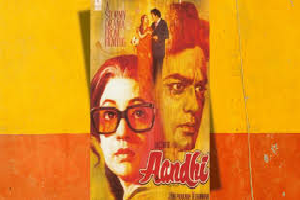23

At a time when the entire nation was celebrating the success of a four-day military campaign against Pakistan, a thoughtless remark by a loose-tongued BJP leader dampened the collective mood. By casting aspersions on Col. Sophia Qureshi — a respected Army officer with an impeccable service record — he not only disrupted the spirit of communal harmony but also damaged the image of his party, the government, and the country.
Such remarks from those Hindu leaders who doubt the patriotism of Indian Muslims and refuse to acknowledge the positive contributions of the community are both irresponsible and dangerous. Instead of questioning others' loyalty, these individuals would do well to reflect on the challenges within their own Hindu community. They must honestly ask: What is ailing Hindu society? Who is truly responsible for its growing insecurity and cultural drift of Hindus?
Modern Hindu society finds itself at a crossroads. In the pursuit of modernity and material success, it is steadily drifting away from the cultural and spiritual moorings that once formed its core identity. Practices and symbols that were once cherished — deeply woven into the fabric of daily life — are now seen as outdated or irrelevant. In response, many deflect accountability by resorting to the overused and divisive Hindu-Muslim narrative. But the truth is simpler, and starker: the decline is not being caused by outside forces, but by internal neglect.
Take, for example, the changing appearance of Hindu women. Traditional attire such as the saree, once worn with pride and grace, has all but disappeared from everyday life. The dupatta is now viewed as inconvenient, and the bindi — a symbol of identity and auspiciousness — is often discarded in the name of modern fashion. What was once considered inauspicious, like a bare forehead, has become the new norm, celebrated as "forward" or "progressive."
This change goes far beyond outward appearance. Sacred ceremonies are increasingly being replaced or diluted by Western customs. Traditional wedding rituals now share space with extravagant, and sometimes inappropriate, pre-wedding festivities. Quiet, spiritually rooted family celebrations like birthdays and anniversaries have morphed into Western-style parties, often devoid of any cultural or spiritual substance.
In other religious communities, children are introduced to their faith from an early age. A Muslim child learns to greet with salaam, a Christian child attends church, a Sikh bows before the Guru Granth Sahib. But how often do Hindu children accompany their parents to temples? And when they do, how often is it to genuinely pray — rather than to merely ask for favors?
If Hindu children grow up unable to appreciate the sanctity of a temple, unable to recite even a single shloka, greeting elders with "Hi" instead of "Namaste," and speaking broken Hindi — let alone Sanskrit — who is to blame? Certainly not other communities. The responsibility lies within Hindu society itself.
There was a time when parents took pride in hearing their children chant the Gayatri Mantra or the Navkar Mantra. Today, they’re happier to hear English nursery rhymes, even as their children grow up unable to utter a single sacred verse. Many middle-class Hindu children have never attended a pathshala, nor can they count fluently in Hindi. This isn’t just a loss — it is abandonment of heritage.
And yet, in public discourse, we hear calls to "awaken" Hindu society. But these calls often come from religious and political leaders who themselves live far from the values they preach. Their personal lives contradict the traditions they urge others to uphold, and so their words fail to inspire. People see through this hypocrisy — and rightly so.
This is the real danger. When leaders cannot lead by example, they resort to communal rhetoric to stay relevant. Instead of guiding Hindus to reconnect with their roots, they stoke fear and division, blaming other communities for the erosion of Hindu identity. But this is a diversion. The real issue is internal.
Hindu society is not lacking in cultural, historical, or spiritual wealth. What it lacks is the will to protect and preserve it. Unlike some other communities, Hindus often need to be coaxed into safeguarding their heritage — and even then, the response is lukewarm. This is not because our culture lacks relevance, but because we have stopped living it.
So let us ask ourselves honestly: Where does this sense of insecurity come from? What drives the fear of cultural loss? It is not minorities. It is not globalization. It is our own indifference — and that is the uncomfortable truth we must confront.
Enough is enough. It is time to rise above this unproductive Hindu-Muslim syndrome. Let us stop pointing fingers and start taking ownership. Let us stop measuring our cultural worth in contrast to others, and instead embrace our values on their own merit.
The Hindu identity will not survive through speeches or slogans. It will endure — and thrive — only when it is lived with sincerity, passed on with pride, and practiced without shame.
Let us begin — in our homes, in our temples, and in our daily lives. Let us rise, not against anyone, but above the din of divisive propaganda.
*************





















































































































































































































































































































































































































































































































































































































































































































































































































































































































































































































































































































































































































































































































































































































































































































































































































































































